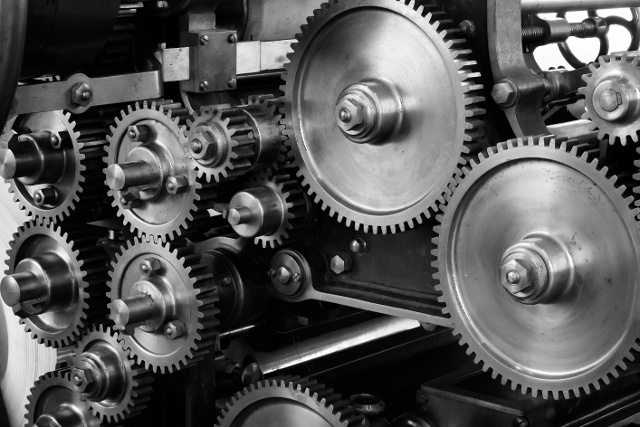 In many manufacturing facilities, it is a challenge to obtain an efficient production flow. Efficiency is often hindered by capacity bottlenecks, overproduction, and lack of productivity. How does a facility overcome these obstacles to improve production efficiency?
In many manufacturing facilities, it is a challenge to obtain an efficient production flow. Efficiency is often hindered by capacity bottlenecks, overproduction, and lack of productivity. How does a facility overcome these obstacles to improve production efficiency?
In short, production facilities must take a look at their production processes to identify where the areas of inefficiency are occurring and make changes to improve these processes. While this may seem simple, many manufacturers do not have the visibility they need into their production operations.
As this problem is being faced by countless operations around the globe, many operations managers are starting to utilize a Manufacturing Execution System (MES). This type of software is able to efficiently track and monitor all of the production processes to give visibility to manufacturers and ensure that production is optimized.
What is a Manufacturing Execution System (MES)?
An MES track and gathers data from the shop floor in real-time which allows operations managers to ensure that their production is running efficiently. Each step of the production can be tracked and analyzed which allows your business to make data-driven decisions to improve your processes.
After the implementation of am MES, you will gain the visibility to measure, visualize, and track the performance of your production operations.
Functions of a Manufacturing Execution System (MES)
MES can operate across various areas of the manufacturing operation such as resource scheduling, order execution, and analysis of production. This allows production processes to be able to operate without human intervention and maintain an accountable and controlled production flow. A well-rounded, robust manufacturing execution system (MES) includes functions that are crucial to facilities such as:
- Data Collection - An MES allows you to collect data manually or automatically, which provides a concise evaluation and analysis of each step of the process. Automated data collection provides additional benefits as it reduces the risk of human error in manual data entry.
- Management of Labor - Data tracking allows you to manage the best qualities and features of your employees and equipment and utilize them in the most advantageous areas. In addition, this can highlight opportunities for additional training to increase the efficiency of your workers.
- Product Tracking - For industries such as the food and beverage industry that must adhere to strict regulations concerning material tracking, MES systems are essential. This allows manufacturers to track the location of each material or product at each step of the production process.
- Quality Control - With real-time data collection and analysis, you are able to control the quality of the manufacturing process. In addition, you will be able to identify problems regarding the quality of the product and quickly determine the source of the problem.
- Performance Analysis - The system performs analysis on the entire process and locates areas in which productivity is lacking. This enables the system to be able to move closer to the efficiency point as the process is cycled.
- Maintenance Management - Plan for inevitable maintenance of machines or tools without hindering production, enabling a smooth production flow. Regular maintenance of your equipment allows your manufacturing facility to run efficiently and prevent major production breakdowns.
The implementation of a manufacturing execution system can easily reduce waste, increase uptime, and reduce inventory through various scheduling methods such as finite scheduling, queue compression, and visual scheduling. MES is incredibly beneficial to large and small manufacturing operations that are in need of production enhancement.
Benefits of a Manufacturing Execution System (MES)
Various benefits of a manufacturing execution system includes the following:
- Increase Visibility
- Reduce Work-In-Process and Waste
- Easily Track Materials and Product
- Improve Product Quality
- Improve Customer Service
- Reduce Setup Cost
- Increase Production Efficiency
A Manufacturing Execution System (MES) is an essential tool for manufacturers requiring full visibility into their production operations. Although it is an extremely advantageous tool, it is not enough as a stand-alone tool to successfully optimize production. Many manufacturers are finding that an MES system integrated with an Advanced Planning and Scheduling (APS) system to be the most viable production.
Instead of seeking and tracking down information, it is being ‘radiated’ to our team. Our guys can see if things are received on the line. We can click a button to see how many cases we’ve run, and then monitor that as it goes. PlanetTogether APS aligns us more.
BRIAN GOODWIN, MASTER SCHEDULER, NEW BELGIUM BREWING
The implementation of a manufacturing execution system combined with an advanced planning and scheduling system can easily reduce waste, increase uptime, and reduce inventory through various scheduling methods such as finite scheduling, queue compression, and visual scheduling. MES and APS are incredibly beneficial to large and small manufacturing operations that are in need of production enhancement.

Advanced Planning and Scheduling (APS) with Manufacturing Execution Systems (MES)
Advanced Planning and Scheduling software like PlanetTogether provides an extension to your Manufacturing Execution System to take your production facility to the next level.
Advanced Planning and Scheduling software has become a must for modern-day manufacturing operations as customer demand for increased product assortment, fast delivery, and downward cost pressures become prevalent. These systems help planners save time while providing greater agility in updating ever-changing priorities, production schedules, and inventory plans. APS Systems can be quickly integrated with an ERP/MRP/MES software to fill the gaps where these systems lack planning and scheduling flexibility, accuracy, and efficiency.
With PlanetTogether APS you can:
The implementation of an Advanced Planning and Scheduling (APS) Software will take your manufacturing operations to the next level of production efficiency by taking advantage of the operational data you already possess in your ERP system. APS is a step in the right direction of efficiency and lean manufacturing production enhancement.
Video: Integrating MES with Operations Using PlanetTogether APS
A Manufacturing Execution System (MES) tracks and gathers real-time data from the shop floor—covering resource scheduling, order execution, quality, performance, and maintenance—so you can measure, visualize, and optimize production operations.
On its own, MES provides visibility and control; combined with Advanced Planning & Scheduling (APS), it becomes a powerful engine for leaner, more efficient manufacturing.
In this video, you’ll see how PlanetTogether APS integrates with your MES and ERP to:
- Turn real-time MES data into finite-capacity, constraint-aware schedules that reflect actual machine and labor availability
- Reduce work-in-process, waste, and unplanned downtime through better queue compression and visual scheduling
- Synchronize supply, demand, and execution so planners can react quickly to bottlenecks, quality issues, and rush orders
- Enable scenario-based, data-driven decision making, using MES feedback to continuously improve throughput and on-time delivery
This video is ideal for operations managers, production planners, and digital manufacturing leaders who want to connect MES shop-floor visibility with APS planning intelligence to reach the next level of production efficiency.
Turn MES Visibility into Profitable, Optimized Schedules
Implementing a Manufacturing Execution System (MES) gives you real-time visibility into production—data collection, labor utilization, product tracking, quality, performance analysis, and maintenance management. That visibility can reduce WIP, waste, and setup costs while improving product quality and customer service.
But visibility alone does not guarantee optimal schedules. Many manufacturers find that combining MES with Advanced Planning & Scheduling (APS) is what truly takes their operations to the next level. APS uses your ERP/MES data to create optimized schedules, maximize throughput on bottleneck resources, synchronize supply with demand, and enable scenario-based decision making.
Download our one-page “The Money Is in the Planning” infographic to see how you can:
- Convert MES data into finite, constraint-aware schedules that reflect real capacity
- Reduce waste, WIP, and inventory through smarter queue compression and visual scheduling
- Increase uptime and throughput by focusing APS optimization on true bottleneck resources
- Provide company-wide visibility to resource capacity and production status, instead of siloed reports
- Use the operational data you already have in ERP/MES to drive continuous improvement and lean manufacturing gains
Share it with your operations, planning, and MES/IT teams as a concise visual guide to how MES + APS + ERP work together to boost efficiency and profitability.